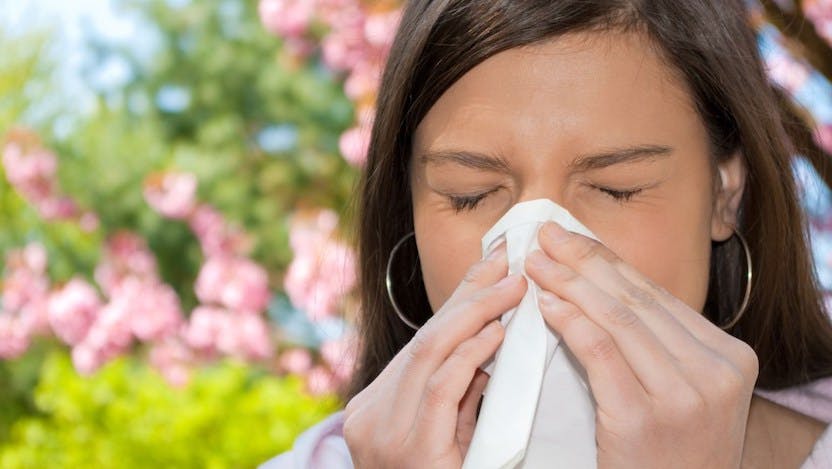Advertising that makes your allergy meds work better

Beginning each spring and carrying on through the fall, television ads for over-the-counter allergy medications blanket the airwaves. They’re as unavoidable as the pollen and mold spores that make people so miserable during allergy season. These commercials are designed to convince consumers of the superiority of one brand over another, but in 2013, a unique study from the University of Chicago suggested that the ads themselves could increase the effectiveness of these drugs as well.
The study crossed academic boundaries at UChicago, conducted by Emir Kaminica, professor of economics at the Booth School of Business, Anup Malani, Lee and Brena Freeman Professor of Law, and Robert Naclerio, MD, who at the time was chief of the Section of Otolaryngology and Head and Neck Surgery (he's now at Baylor). They found that people who took a common allergy medication responded better after watching a movie interspersed with commercials for that drug instead of ads for one of its competitors.
The body responds to common allergens like pollen, mold or dust mites by releasing a substance called histamine. This triggers an inflammatory response—sneezing, itching, watery eyes, etc. The most common way to treat these symptoms is with an antihistamine that lessens that reaction.
Antihistamines have been around for decades, and are now marketed heavily under brand names like Benadryl, Claritin and Zyrtec. The researchers wanted to see if this advertising has any real effect on consumers, besides convincing them one brand is better than the other.
Naclerio said that allergists have long benefitted from the placebo effect with allergy medications. People who believe they are taking a drug will see their symptoms improve, whether it had any active ingredients or not.“It’s clear that there is a placebo effect. I’ve always believed that. As a clinician we get the placebo effect plus whatever effectiveness of the drug,” he said.
But this research revealed a new dimension.
“This study actually says maybe we get a third thing. We get the benefits of advertising for the drug too. It’s a novel idea,” Naclerio said.
They divided the study subjects into two groups, those with a history of allergies and those without. They gave each subject a skin test by injecting a small amount of histamine under the skin on the forearm, then recording their response by measuring the size of the welt it raised.
After the histamine skin test, each subject took a 10-mg tablet of Claritin. One group watched a movie (“Shakespeare in Love”) spliced with Claritin commercials, and one group watched the same movie with ads for its competitor, Zyrtec. The researchers repeated the histamine challenge halfway through the movie, and again when it was over. They also asked the study subjects at each point how effective they thought Claritin would be for treating allergies.
In the group without allergies, Claritin was much more effective at inhibiting the allergic skin reaction in those who saw the movie with Claritin ads than those who saw the Zyrtec ads. This group also reported much more confidence in the efficacy of Claritin.
As to how or why this happened, Naclerio said the science is still unclear. And it only appeared to work in people with no history of allergies. The Claritin ads had no effect on the study subjects who had experienced allergies, nor did they change their opinion of Claritin’s effectiveness.
Still, Naclerio said the fact that advertising had a measurable, physiological effect on an objective measure like a skin test was completely unexpected.
“I would have never believed that advertising would actually affect a drug. It’s taking a drug that’s known to be effective and making it more effective,” he said. “That’s an incredibly novel concept.”

